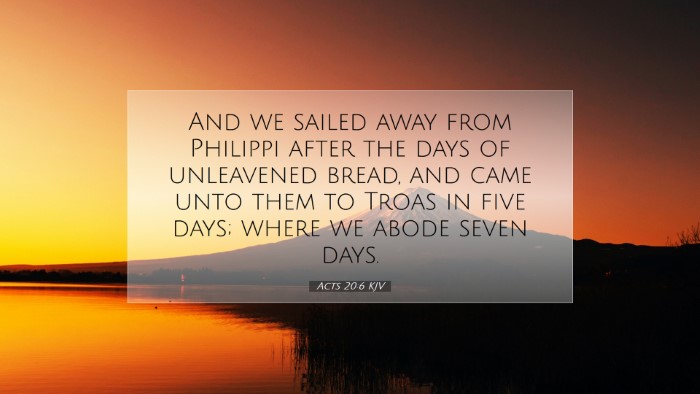Old Testament
Genesis Exodus Leviticus Numbers Deuteronomy Joshua Judges Ruth 1 Samuel 2 Samuel 1 Kings 2 Kings 1 Chronicles 2 Chronicles Ezra Nehemiah Esther Job Psalms Proverbs Ecclesiastes Song of Solomon Isaiah Jeremiah Lamentations Ezekiel Daniel Hosea Joel Amos Obadiah Jonah Micah Nahum Habakkuk Zephaniah Haggai Zechariah MalachiVerse
Acts 20:1 Acts 20:2 Acts 20:3 Acts 20:4 Acts 20:5 Acts 20:6 Acts 20:7 Acts 20:8 Acts 20:9 Acts 20:10 Acts 20:11 Acts 20:12 Acts 20:13 Acts 20:14 Acts 20:15 Acts 20:16 Acts 20:17 Acts 20:18 Acts 20:19 Acts 20:20 Acts 20:21 Acts 20:22 Acts 20:23 Acts 20:24 Acts 20:25 Acts 20:26 Acts 20:27 Acts 20:28 Acts 20:29 Acts 20:30 Acts 20:31 Acts 20:32 Acts 20:33 Acts 20:34 Acts 20:35 Acts 20:36 Acts 20:37 Acts 20:38

